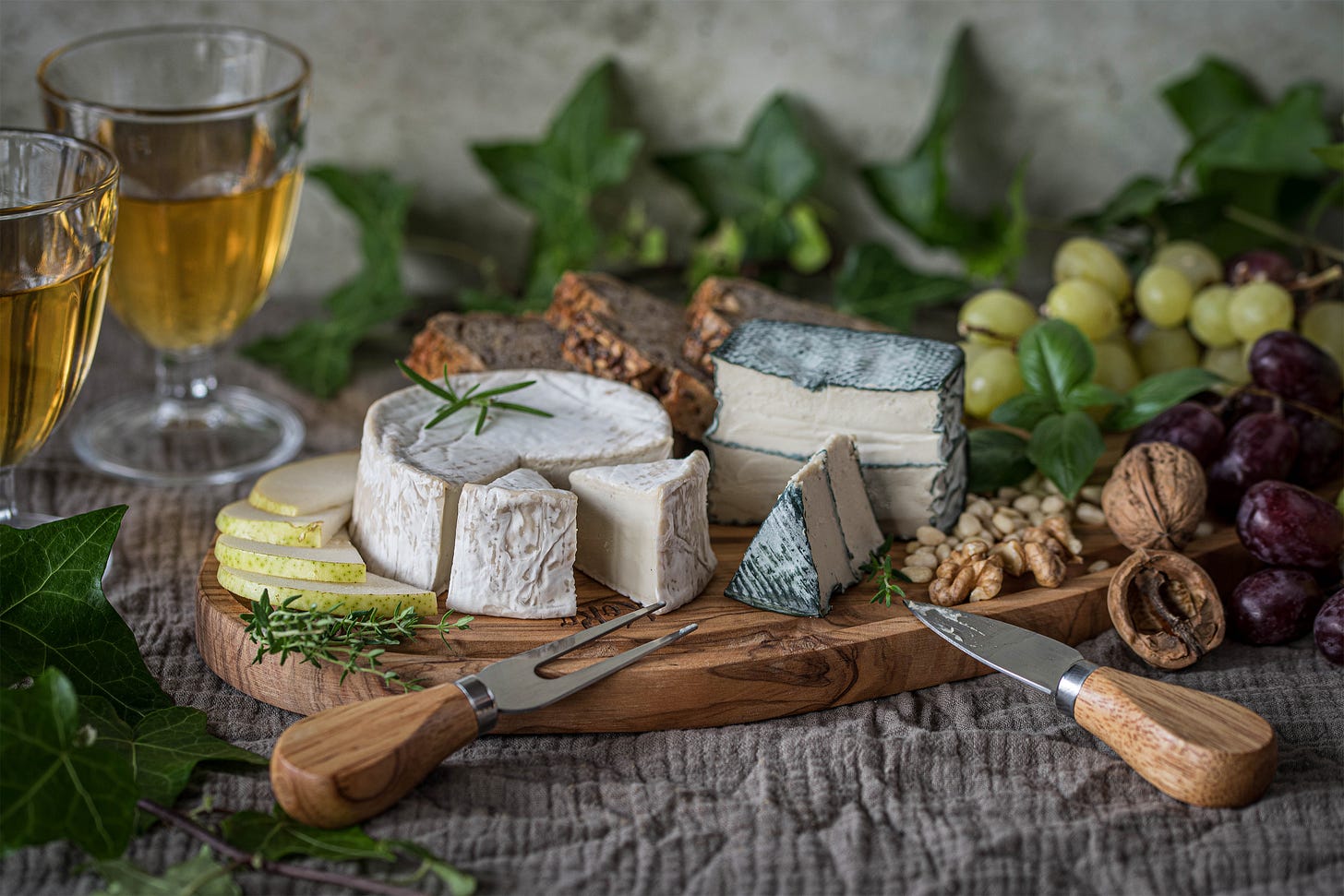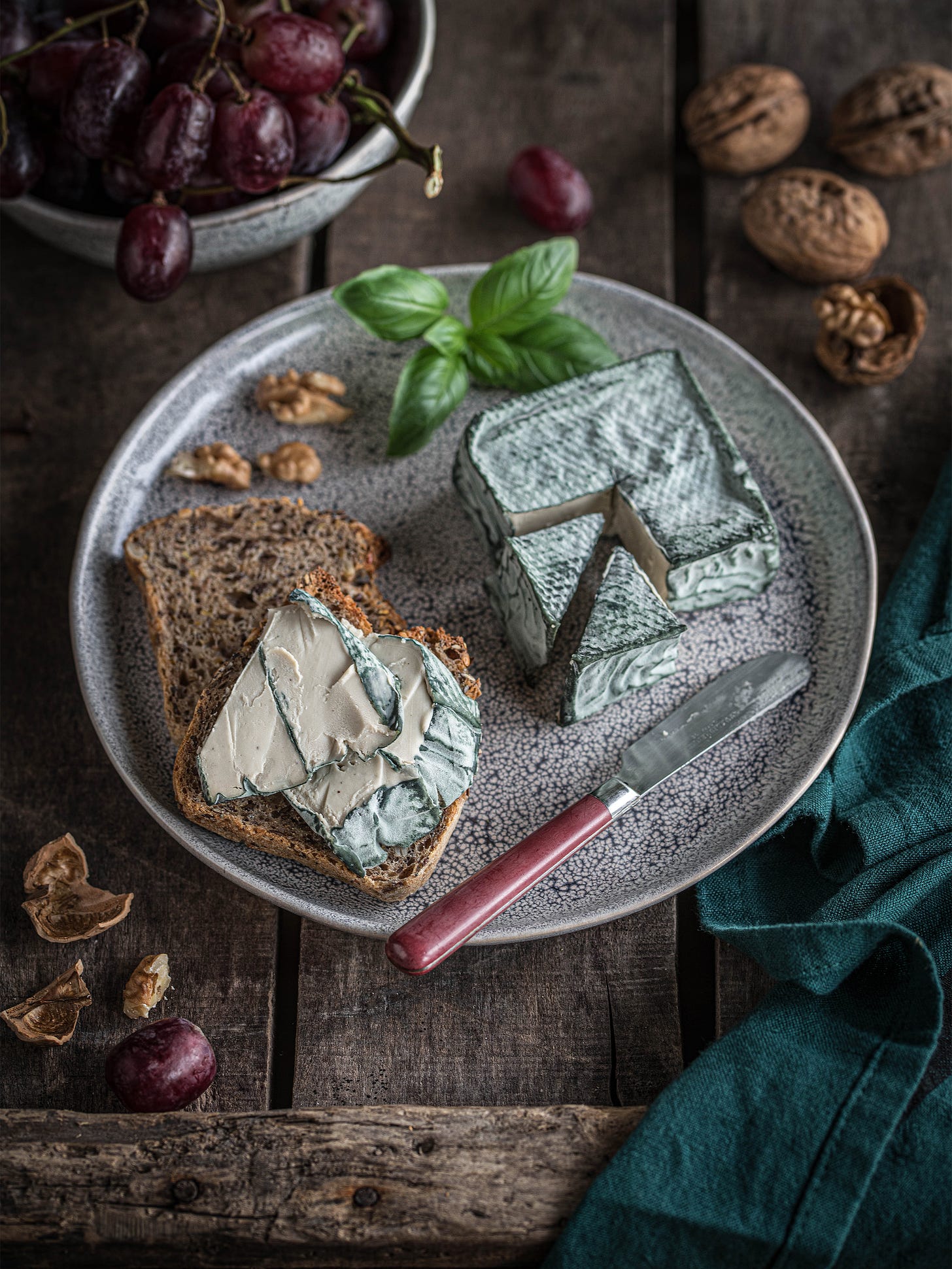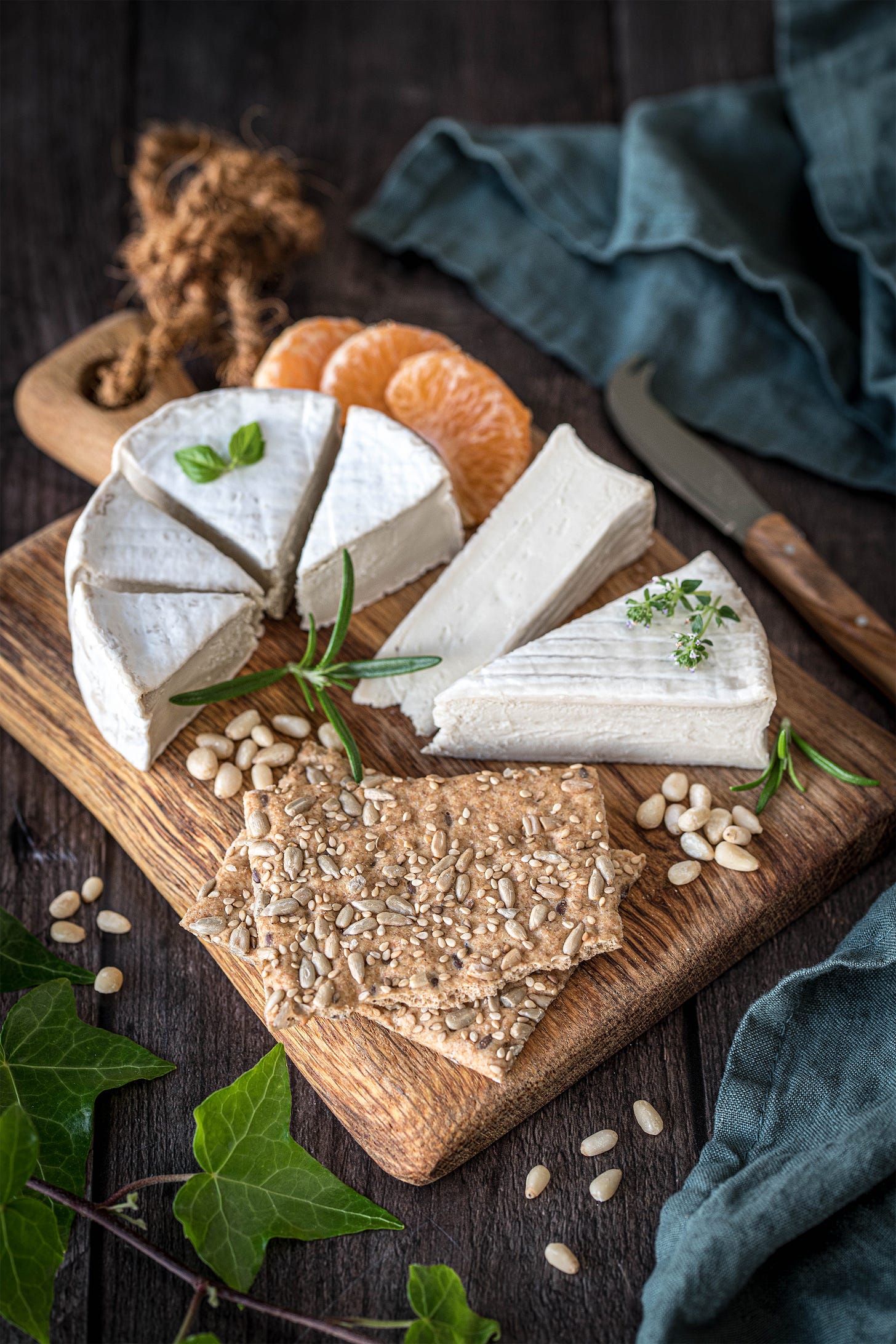The Plant-Based Cheese for Connoisseurs
Ty'K Affinage
Though I am all for eating whole foods, the fact that the range of plant-based foods in supermarkets is steadily increasing is a significant step in the right direction. It proves that consumers have started to eat more consciously and we are moving towards a greener future. Recently, Dutch supermarket Albert Heijn released a new line of plant-based products called Terra, and just last week, major Dutch dairy company Boermarke announced it was going fully plant-based. Smaller initiatives, however, also deserve to be put in the spotlight. Especially when it comes to products like plant-based cheeses, which, unlike meat replacements and plant-based milk, are still in full development.
According to some ‘cheese connoisseurs,’ those who have gone plant-based will never have the joy of experiencing a good cheese board again, because “there is no such thing as good plant-based cheese.” After a few bad experiences (usually with mediocre products from the supermarket), the prejudices are quickly confirmed and with their unvarnished opinions they may just deter others from giving plant-based cheese a chance. A shame, because as someone who loved cheese wrote about it extensively, I can assure you that there are excellent plant-based cheeses to be had, thanks to forward-thinking entrepreneurs like Manon Boucand and David Vigent, who put their heart and soul into making cheeses in a traditional way that will undoubtedly tickle the taste buds of even the biggest cheese snobs.
The story of Ty’K Affinage started five years ago when Manon and David received a kit to make their own plant-based cheese as a Christmas gift. They started experimenting in their own kitchen and two years later, in April 2020, they opened a real plant-based cheese factory in Vannes, the capital of the Morbihan in Brittany.
“As cheese lovers, we wanted to make the most ethical cheese possible: plant-based, organic and zero waste,” David told me. “Our packaging is made of compostable film made from cellulose (wood fiber), and for 1,000 plant-based cheeses we produce less than one kilo of waste.” Ty’k’s affinés (in France the law does not allow you to call these products ‘cheese’) are fermented, matured and turned every day so that they develop a beautiful rind, just like real cheese. The only difference is that they are made from cashew nuts, filtered water, salt and plant-based maturing ferments.
And the taste? The Pebeyec, enriched with a hint of coconut milk, has a beautiful blue-gray rind and a full, creamy texture. It is subtly nutty with smoky nuances and a slightly earthy, long finish. It goes well with an oak-aged Bordeaux. The Petit Boucan, a bloomy rind with a slightly spicy finish, goes perfectly with a crisp Pinot Gris. In short, plenty of complexity.
“There is a great demand for plant-based cheese, but more people need to find us,” David explains. “It is a new product, and compared to multinationals, we have limited financial resources to promote it.”
Tasting is believing. In France, where cheese is almost elevated to a religion, Ty’K’s affinés will amaze even the biggest skeptics.
What follows is my interview with David
Together with Manon Boucand, you started Ty’k Affinage in Vannes in April 2020. Why did you decide to make plant-based ‘cheese’?
We are people committed to life as a whole. As cheese lovers, we wanted to create the most ethical cheese possible. It had to be vegan and at most zero waste. We produce and offer cheeses as if they were for our personal consumption. With the same requirements.
How did you learn to make plant-based ‘cheese’?
Four years ago, at Christmas, we were gifted a kit to make vegan cheese at home. This is where it all started, in our kitchen. We tried. Gave friends a taste and ... the reputation was born. Then, over time, we modified and improved the recipes to have an alternative that responds even more to the standards of cheese.
Tell us about the ingredients used to make your ‘cheese’?
Our ingredients are all organic and controlled. We work in the most ethical way possible. Our cashew nuts are shelled mechanically, they are transported by boat, and the people who work are all treated and paid fairly. Moreover, all our research work is oriented towards French and always organic raw materials.
Finally, we can talk about the transparent packaging, made of “home compost” wood cellulose. We produce less than 1 kg of waste for 1,000 vegan cheeses produced.
How are your ‘cheeses’ made? (Is the process similar/different to traditional cheese?)
To make traditional cheese, you have to strain milk to make a curd. We make vegetable curd from vegetable products. We mold this curd like a traditional cheese, we inoculate it with ferments, like a traditional cheese, we put it in the cellar like a traditional cheese. Finally, we turn the cheeses every day so that the crust and the ferments develop homogeneously.
They are living products, so yes they are made almost like cheese, evolve, eat and keep like traditional cheeses.
What is the market for plant-based ‘cheese’ like in France at the moment?
Today there are several players offering alternatives to cheese. Each brand has its identity, its products.
We are four French companies that produce ripened cheese on a national scale to meet demand, but there are many people at a regional level who are creating the future of cheese and we are delighted about that.
There is a real demand. Anyway, for a fairer world it is necessary to change what is on the plates of most people.
Multinationals are also at stake and are beginning to see alternatives to cheese in supermarkets, a bit like alternatives to meat. These alternatives are usually made from starch rather than noble materials.
Do you think people are hesitant to try plant-based ‘cheese’?
No, people don’t hesitate. We notice this during trade fairs and tastings.
Why would you be against tasting artisanal cashew cheese?
The obstacle we have is the lack of knowledge of the products. It is a new product. It is unknown. The companies that manufacture them have limited advertising and cash resources compared to multinationals.
In addition, plant-based cheeses are now more expensive than dairy cheese, which is problematic for some budgets.
In France, the word ‘cheese’ can only be used for products made with dairy. What do you call your product ?
Our products are called ‘affinés.’ Indeed, we are forbidden to call them ‘cheese.’
But not forbidden to make them taste like a cheese and have the texture of a cheese.
Can you give us some wine pairing suggestions for Petit Boucan and Pebeyec?
Pebeyec
With a Basque apple wine from the Bordatto estate, it’s just perfect! MOKOFIN 2016 “Gourmet” sweet apple wine. Nose: apples, citrus fruits, ripe fruits, complex. Mouth: roundness, ample, supple tannins, balanced sweetness, gourmet.
You can also go for a red oak-aged wine, like the Terroir des Graves de Viaud cuvée.
Grape variety: three-quarters of Merlot and one-quarter Cabernets. It is a wine with purple reflections and a very fruity nose. Cherry, blackcurrant and cooked fruits, underlined by woody scents. After a delectable attack, both supple and fresh, woody tannins with a mocha flavor take over.
Le Petit Boucan
Le Petit Boucan will go well with a Pinot Gris from Alsace, like the one from Domaine Fleith, if you like dry wines.”
It will also go very well with a slightly mellower Pinot Gris.
Made from grapes that will have matured on the Steinweg cru, this Pinot Gris is revealed in a balance on the power of the grape variety. The result is a very fresh and crystalline wine, which offers almost stony, very mineral notes. A magnificent wine!
The ‘cheese/wine’ pairing is, for the French, a real love story. Whatever your choice to savor our best matured cheeses, we wish you a great tasting!
For more information, visit: Ty’K Affinage
Images courtesy of Laura VeganPower





Honestly, looking at the pictures of those cheeses I would have no clue they're not the 'real thing' - they look absolutely stunning! It's very reassuring to hear that France is pushing the boundaries of their cuisine. It's very French of them, but seriously, every French person I meet believes their cuisine is the best in the world lol admittedly it is great haha but it could become even better if there was more experimentation like these vegan cheese-makers!